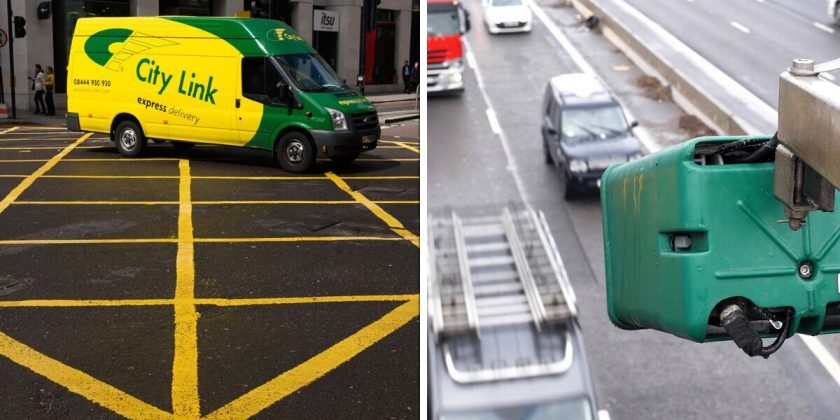Highway Code changes slammed by Steve McNamara
We use your sign-up to provide content in ways you’ve consented to and to improve our understanding of you. This may include adverts from us and 3rd parties based on our understanding. You can unsubscribe at any time. More info
At the start of next month, councils across England and Wales will be given new powers to charge drivers for traffic offences. Many experts have warned that this will lead to many drivers being handed “wrongly issued” fines, which will have to be appealed.
The Department for Transport (DfT) will soon begin accepting applications from councils to issue fines for moving traffic offences.
Successful applicants will be able to issue penalty charge notices (PCNs) for these offences from June 1.
This will include infractions like yellow box misuse, making an illegal turn or driving the wrong way down a one-way street.
This move is part of efforts to promote cycling and walking and make the roads safer for all who use them.


Yellow boxes are used to ensure traffic flows smoothly through busy junctions, with councils looking to fine anyone who prevents this from happening.
The RAC claimed many motorists will be unfairly punished unless the Government improves its design, maintenance and enforcement guidelines for local authorities.
The motoring group called on the Government to improve its official design, maintenance and enforcement guidance to avoid thousands of drivers from being wrongly fined.
Nicholas Lyes, head of roads policy for the RAC, said: “In the absence of definitive guidance on the design, maintenance and enforcement of box junctions there will be a high degree of confusion among drivers and local authorities.
DON’T MISS
Drivers slam ‘nonsense’ air con driving rule that can land £1,000 fine [NONSENSE]
Drivers furious over sunglasses rule that can land £5,000 fine [SHOCKING]
New proposals would legalise e-scooters next year and reduce car use [IMPORTANT]
16017
“[This] could lead to an avalanche of penalty charge notices being wrongly issued and then having to be appealed.
“This will inevitably lead to an unnecessarily high number of appeals for local authorities to review, as well as some poor outcomes for drivers.
“We are worried that failing to update guidance to include the lessons learnt from more than 15 years of enforcement in London will lead to countless wrong fines being issued, no end of unnecessary stress for drivers who feel they have been unfairly treated and thousands of wasted council hours investigating appeals.”
He added that the RAC have written to the Department for Transport asking them to update guidance to make it clear for local authorities what the minimum offence would be.
 Book here
Book here
Book your MOT with the UK’s #1 MOT tester – just click the link to book online.
 View Deal
View Deal
To date, only local authorities in London and Cardiff – and elsewhere the police – have had the power to issue penalty charge notices for these infringements.
On Transport for London’s red routes, drivers can be handed fines of £160, which is reduced to £80 if paid within 14 days.
An investigation by the RAC in 2020 found that London and Cardiff raked in £31.4million in the 2018/19 financial year after issuing more than half a million PCNs for yellow box infringements.
Sam Wright, a chartered engineer who was formerly responsible for the design of yellow boxes on the TfL network, also commented on the upcoming law changes.

He said: “The key design principle is that yellow boxes should be no bigger than is necessary to prevent vehicles obstructing through movements.
“They are not designed for, and serve no purpose in, situations where vehicles are travelling in the same direction.
“The second main condition is that drivers should have adequate visibility beyond the box to be able to make a clear judgement before entering it.
‘It’s not just that drivers need to see the end of the box, they need to see that there is space beyond the box for their vehicle to fit without any part of it overhanging.
“Drivers may also be surprised to hear that there is no legal requirement for authorities to meet this design criteria and it’s simply down to the competence of the enforcing authority.”
A DfT spokeswoman said: “These new powers are designed to improve cycle safety, air quality and support of bus services.
“It’s for local authorities to enforce them and ensure they meet local needs.”
Source: Read Full Article
